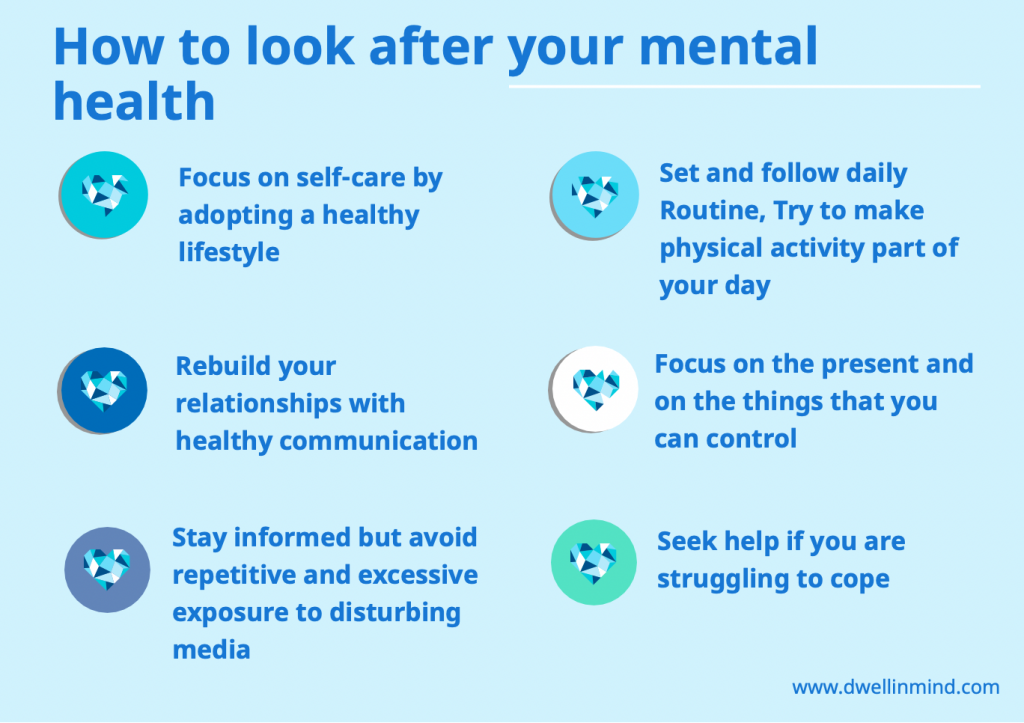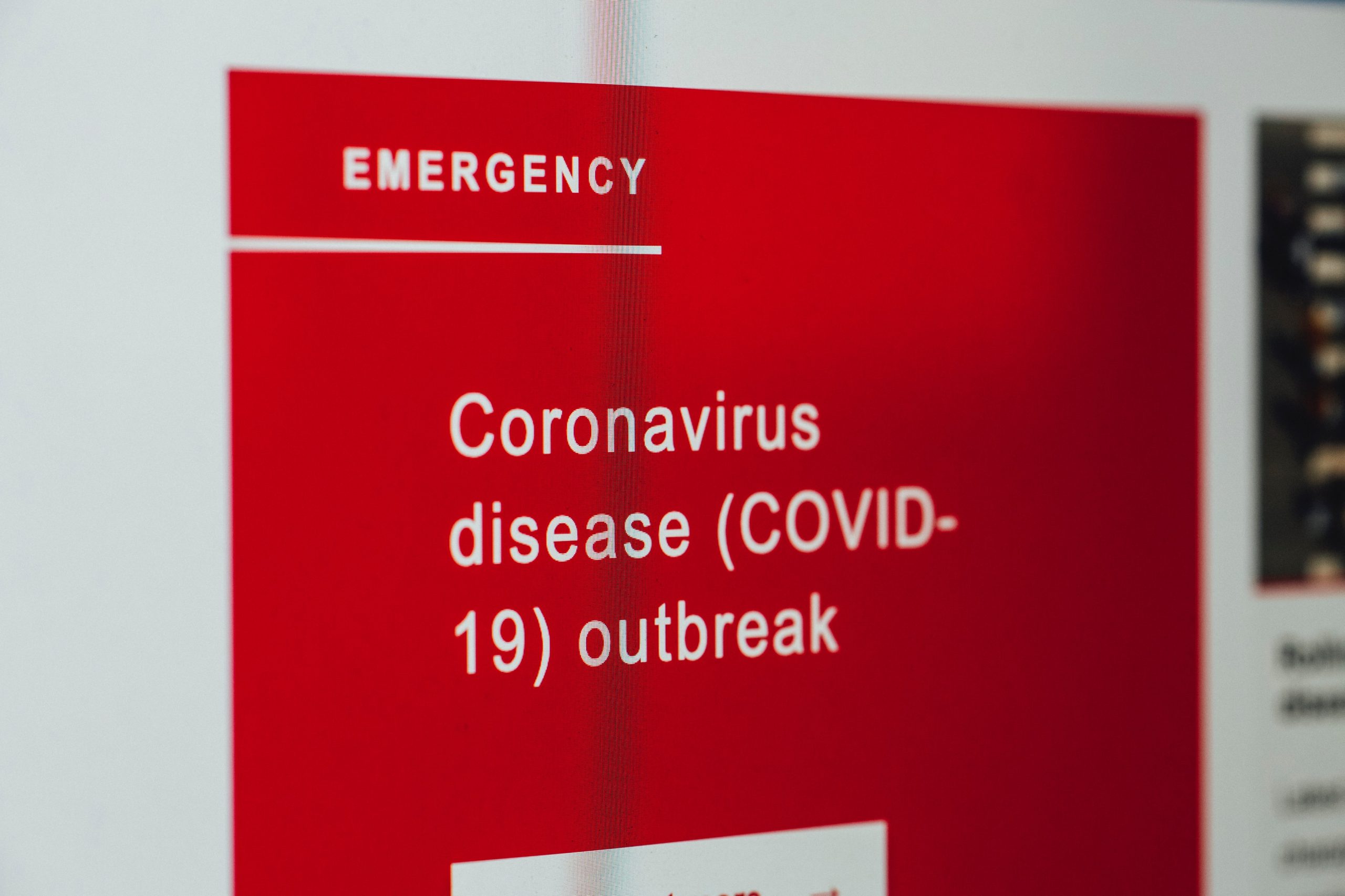The world has faced several pandemics and epidemics in the past. COVID-19 being the most recent one is the leading cause of concern today. Covid-19 and factors associated with it have greatly impacted people’s health and psychological well-being. One of the research studies has reported a significant relationship between the COVID-19 pandemic and mental health issues such as stress, anxiety, depression, post-traumatic stress disorder, and psychological distress. There are also instances of emotional distress linked with dysfunctional behavior, unhealthy eating patterns, disturbed sleeping, excessive alcohol consumption, and substance abuse. In this article, we discuss some mental health effects of COVID-19.
How is Covid-19 pandemic affecting our mental health and well-being?
Health anxiety:
The rise of COVID-19 infection has elevated stress and health-related anxiety. Health anxiety is a tendency where individuals worry that they are sick or become alarmed by minor symptoms related to illness. This anxiety can range from mild enough not to interfere with daily life or severe enough to become a psychiatric disorder. People usually experience health anxiety during epidemics or pandemics when they are afraid of contracting the disease or having serious complications.
Hopelessness & helplessness:
Fear, anxiety, confusion, absence of vaccination, lack of treatment options, breakdown of the public health care system, widespread mortality gave rise to emotional imbalances including hopelessness and helplessness. Hopelessness refers to the feeling that nothing can be done to overcome this pandemic situation. Helplessness is the feeling when people believe that they have no power to make the situation better or protect themselves. Both hopelessness and helplessness are closely related to a variety of emotional and mental health conditions and poor physical health.
Trauma, loss, and grief:
The pandemic has inflicted a traumatic impact on more or less the entire population including people who survive COVID-19, their family and friends, health care professionals, first-line helpers, and even the people who never catch the virus. Trauma is an emotional reaction triggered by terrifying events and may develop in PTSD(Post Traumatic Stress Disorder). Pandemic is creating a huge wave of trauma and bereavement with everyday tragedies, Isolation, critical illness, hospitalization, scattered business, the devastations of loved ones, and so on. For many of us, excessive exposure to pandemic news may trigger traumatic stress. Coping with the trauma can present unique challenges and requires healing changes and support.
Disturbed Family dynamics and social life:
Social distancing, state-imposed lockdowns, isolation, border measures, and school and business closure have created unprecedented conditions for family and social life. We human beings have a strong need to feel socially connected and have a sense of belonging. When this need is not met, it creates great emotional turmoil. Isolation and restrictions on crossing borders have also left the huge population of migrant workers and foreign students in great distress. In addition, Increased levels of stress and anxiety have hosted a higher risk of violence in vulnerable families. Fear and Stigmatization associated with the infection have caused people to refrain from seeking or providing help and support. In short, the very basic social support system is shattered that previously aided the mental health and well-being of families and alleviate the risk of health and social inequities.
Financial and professional turbulence:
The lockdowns and COVID waves rollercoasters have greatly impacted many financial institutions as well as the work-life of an individual. The sudden switch in work culture, WFH with an absence of fixed working hours, and disturbed work-life balance has resulted in burnout, cognitive fatigue, emotional exhaustion and have depleting effects on productivity and job satisfaction. Furthermore, long-term WFH has given rise to the issues like insomnia, obesity, restlessness, stress, loneliness, etc. On the other hand, job loss and closure of small businesses have pushed up the unemployment rate and severe financial hardships. These pandemic-related disruptions have left their footprints on emotional and psychological health.
Managing the negative effects of COVID-19:
Tough times never last, but tough people do. —Robert H. Schuller
- Focus on self-care by adopting a healthy lifestyle. Take well-balanced diet and appropriate amount of sleep.
- Set and follow daily Routine. Try to make physical activity part of your day. Also, Meditation and relaxation activities are great ways to maintain and regain health and wellness.
- Rebuild your relationships with healthy communication. Connect with others. Speak about your issues, concerns, emotions, and feelings.
- Focus on the present and on the things that you can control. As a result, This will help you in reducing stress and anxiety arising from fear of uncertainty.
- Stay informed but avoid repetitive and excessive exposure to disturbing media. Allocate specific time and duration to seek information. Rely on only valid sources and keep yourself protected from misinformation.
- Seek help if you are struggling to cope. If you find yourself overwhelmed by stress or depression and get suicidal thoughts, don’t hesitate to get help. Remember, suicide is preventable. If you notice any sign of distress in a friend or a loved one, offer help and support. Indeed, helping those in need will help you and others feel less lonely or isolated.

